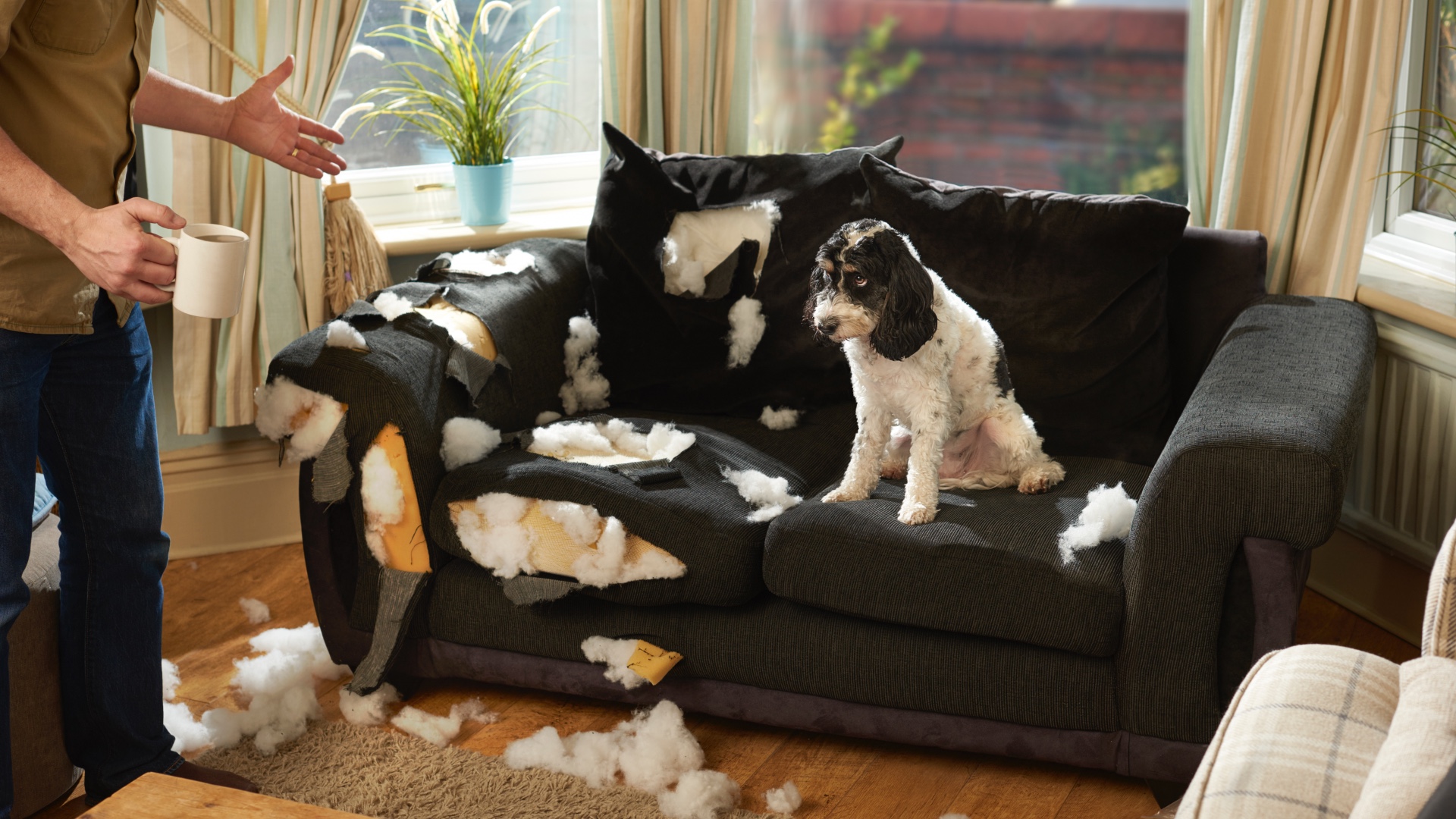
If you're anything like most pet parents, having a well behaved dog is likely at the top of your wish list! But as we all know, these things are often easier said than done and getting your pup to where you want them to be takes a whole lot of time and patience.
But before you resign yourself to a life of trying to figure out how to deal with a badly behaved dog, you may be surprised to discover that there's a simple mistake you could be making that's derailing your dog's training progress — and avoiding it can make all the difference when it comes to improving your pup's behavior.
So, what is it? Well, according to expert trainer Carolyn Martell, the founder of Good Dog Training, it's making excuses for bad behavior instead of having empathy.
"When we make excuses and allow bad behavior, we’re selling our dogs short. With help and training, they’re capable of more than we think sometimes," she explains in a recent Instagram post.
Read on to discover five of the most common excuses Martell sees dog owners making — and we're guilty of the first two!
1. He's just excited: We've all been there, our dog is jumping all over someone and barking their head off and we tell the person that they're just very excited to see them. But as Martell explains, a dog can be excited and well behaved.
"A dog can be excited and know how to self-regulate and display self-control. Allowing your dog to practice out of control behavior every time they're excited isn't helpful to your relationship or their training."
If your dog struggles in this area, check out our guide to how to stop a dog from jumping up, which has lots of helpful tips to get you started on your training journey.
2. She's just a puppy/adolescent: "Letting your puppy or adolescent dog rehearse bad behavior now will only ensure that they'll be really good at it forever," Martell points out. "They're regularly testing boundaries and seeing what you'll allow. Be careful of what you allow because that's what they'll keep doing."
3. He didn't get his walk today: Martell acknowledges that while it can certainly be more challenging for your dog to behave well when they haven't had their exercise needs met, it doesn't mean you should allow them to rehearse bad behavior.
"We need to teach our dogs how to behave well, even if they're feeling extra energetic," she explains. "Don't make good behavior dependent on whether your dog got their 10-mile run today."
4. She's a....(insert breed): "Good behavior is not breed-dependent," says Martell. "Of course individual traits and characteristics can make certain things more challenging — teaching calm greetings to a Mastiff is probably easier than teaching them to a Golden Retriever — but that doesn't mean you should let your golden clobber everyone she meets. She can still learn polite greetings."
5. He's a rescue: Martell feels that the trauma and stressors your dog has encountered in the past should not be used as an excuse for bad behavior. "A rescue dog can be taught not to rush over and jump on people, or not to bark at people just as easily as other dogs. Rescue dogs deserve to be taught appropriate behaviors and skills, too."
Kindness and empathy are really important in training, but as Martell points out, we can still hold expectations and boundaries.
For 1:1 support in helping your pup master the ropes of what's expected of them, we recommend reaching out to a professional trainer. Check out our guide to how to spot dog trainer red flags to ensure you're working with someone suitably qualified who uses positive training methods.







